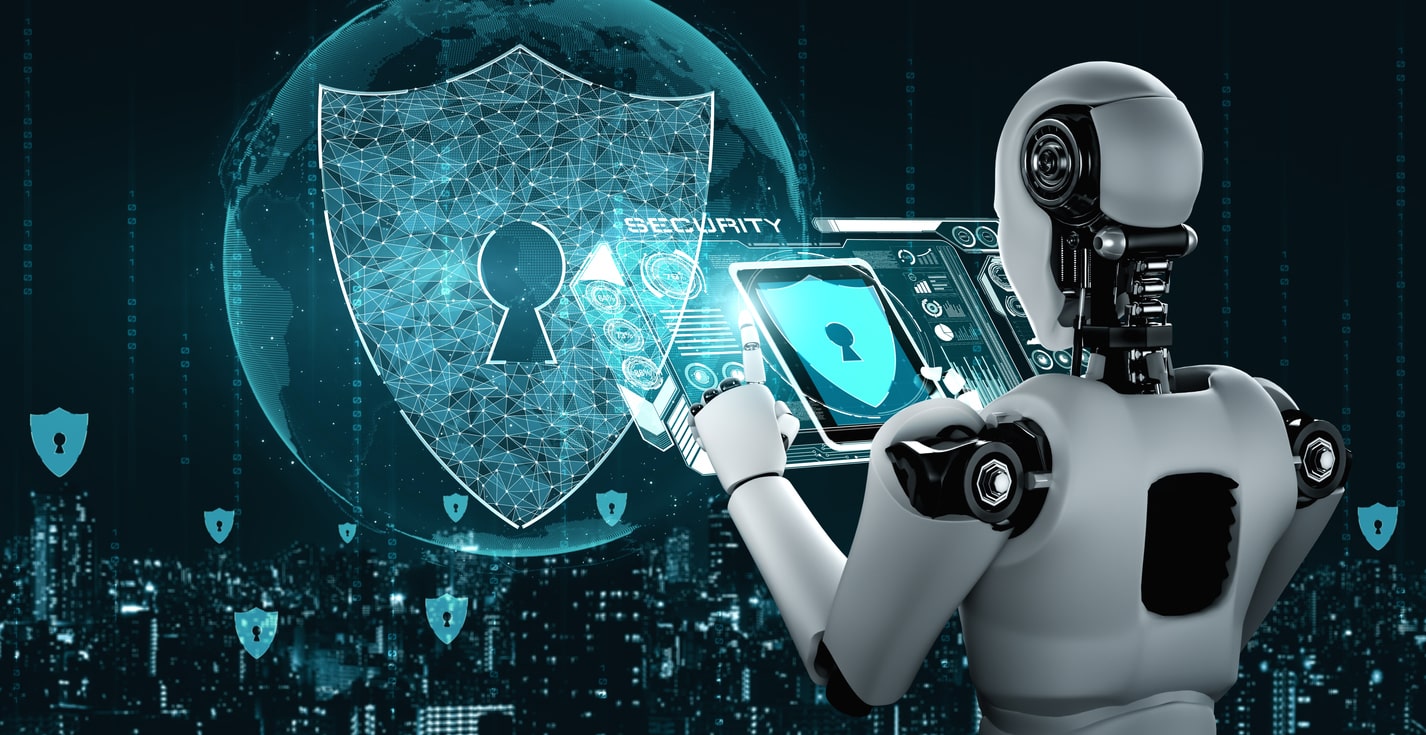As our main character learns more about cybersecurity, a constantly changing and growing field, they are amazed by the potent blend of artificial intelligence and digital defense. This coming together is like a symphony of complicated algorithms or a complicated dance where people and machines work together.
AI has become a digital superhero that keeps our virtual worlds safe by being able to recognise threats and act on them automatically. Join our main characters on this journey as they discover the exciting worlds of cybersecurity and artificial intelligence (AI). Together, they will find the amazing things AI can do, look into possible risks, and cast light on a bright future as we look for new ways to keep our digital world safe.

Intelligent Detection of Threats
AI is a key part of finding and stopping online threats faster and more accurately than ever. Machine learning algorithms look at a lot of data for trends and outliers that could be signs of bad behaviour. AI-powered systems like Daitaku can adapt to new risks and keep you safe in real time because they always learn from new data.
These smart systems are great at finding known software, but their real power is in finding threats that haven’t been seen before or are changing. AI can spot odd behaviour, such as unusual network traffic, attempts to get in without permission, or strange user actions. This lets you stop threats quickly and proactively.
Unsecured Wi-Fi Networks
Unsecured Wi-Fi networks are a major threat to our online safety that we don’t see. Without encryption, these networks leave us open to hacking and data theft. However, ExpressVPN says that we can reduce these risks by using a VPN. VPNs link our devices to the internet in a safe and encrypted way. This keeps our online actions from being tracked by people who don’t want to see them. With this extra layer of security, we can use Wi-Fi in public places with confidence, knowing that our personal information is safe. In today’s linked world, it’s important to prioritise VPN use if we want to protect our privacy and stay in charge of our digital lives.
Advanced Behavioral Analysis
According to ZDNet, AI’s cybersecurity opportunities, challenges, and ethical considerations are complex and evolving. AI gives cybersecurity systems the ability to understand and analyse user behaviour, which makes it possible to spot possible insider risks or accounts that have been hacked. AI systems can spot deviations from normal behaviour and flag suspicious actions that may be signs of a cyberattack if they don’t fit with what’s expected.
Machine learning models look for strange things in how users act, like sudden access to secret information or strange data transfer patterns. These early signs give security teams time to look into and deal with possible risks before they do a lot of damage.
Automated Incident Response
With cyber risks getting worse constantly, it’s important to act quickly. AI automates incident reactions, making finding, stopping, and quickly fixing security breaches easier. AI-powered systems can look at and connect a lot of data from various sources, giving security teams information they can use.
Automated incident reaction cuts the time between finding a threat and doing something about it. This makes attacks less damaging. AI can also take predefined steps to protect itself, like isolating compromised devices or blocking suspicious network traffic, while telling human workers to investigate the situation further.
Enhanced Phishing Detection
Phishing attacks are still a big worry for both people and businesses. AI makes it easier to spot phishing by looking at the content of emails, how the sender acts, and other details about the context. Machine learning algorithms can find patterns and traits common in scam emails and flag them as possible threats before they get to users’ inboxes.
AI systems get better at spotting and stopping fraudulent emails as they learn from new phishing tactics and patterns. This technology helps organisations protect private data, stop unauthorised access, and lower the risks of social engineering attacks.
Threat Intelligence and Predictive Analytics
AI gives defense teams helpful information about threats and ways to predict them. AI can find new threats, predict attack patterns, and provide actionable insights by looking at a lot of data from different sources, such as security feeds, industry reports, and open-source intelligence.
This predictive capability enables organisations to allocate resources effectively, put security measures in order of importance, and stay one step ahead of cybercriminals. By using AI, cybersecurity professionals can make smart choices and come up with proactive plans to protect against threats that are always changing.
Conclusion
Artificial intelligence has completely changed the field of cybersecurity by giving it new ways to find threats, analyse behaviour, respond to incidents, spot scams, and do predictive analytics. As AI keeps getting more intelligent, it could help make cyber defenses even better. But it’s essential to think about what could go wrong.
